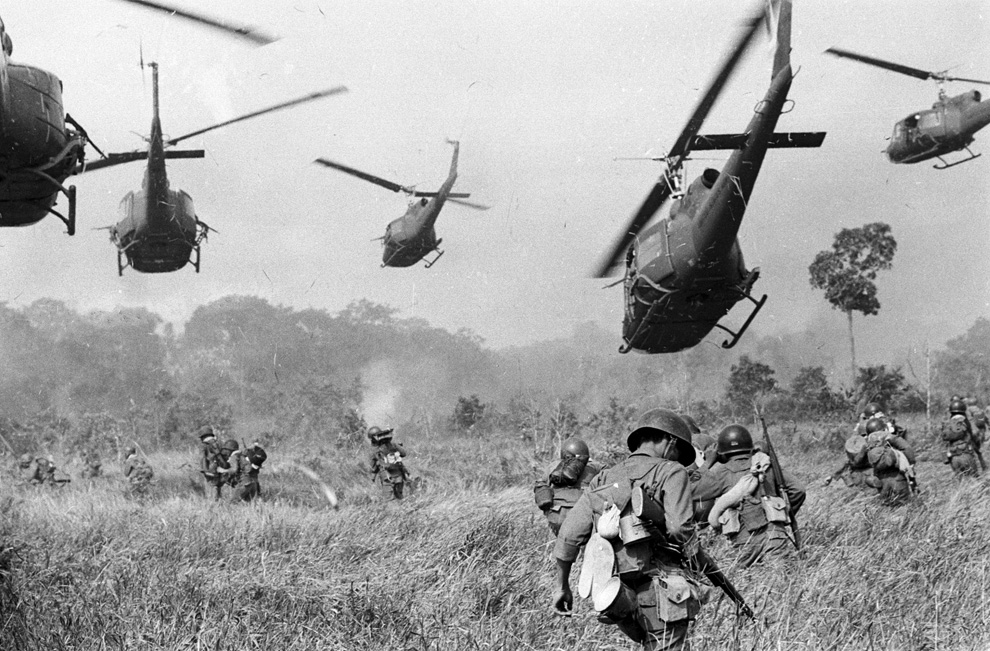
Against the beautiful backdrop of a U.S. Open links course with all of the excitement the best golfers in the world can bring to a major tournament, a simple wedding took place recently spanning two cultures.
My 28-year-old nephew married a lovely Vietnamese lady. Finishing a two-year Fulbright fellowship she soon returns to Vietnam to honor the commitment to use her newly acquired skills at home. The groom, a double masters’ degree graduate student at Duke’s Fuqua Business School, finishes this spring and will leave for Vietnam where he expects to find employment, too.
His parents are concerned about having a son and daughter-in-law literally halfway around the world in a country that is as foreign to most Americans today as is Mars. No doubt both parents are reminded of and cautioned by my Vietnamese experiences some 45 years ago as the United States began its military buildup and, to quote a well-worn phrase “to pay any price and bear any burden,” which we surely did.
As a Swift boat skipper, my crew and I were assigned to our northern most base in Danang, South Vietnam, with an operating area ranging from the 17th parallel that divided north and south (and which we would more than occasionally cross violating the rules of engagement as men or boys of a certain age will do) to some 100 miles south and the infamous Cap Batangan peninsula and a small village that became more infamous in 1970 called My Lai.
Even then, Batangan and My Lai were very dangerous places that produced casualties when we operated there. Indeed, a Naval Academy classmate was killed nearby when his South Vietnamese Junk Base was overrun by Viet Cong.
Our training in San Diego for that war ranged from absurd to ridiculous. Much of my time was spent commuting to San Francisco to be with a then-paramour. Counterinsurgency class work mirrored the absence of understanding that ultimately doomed the Vietnam venture though one lecture remained permanently embedded in my mind. The lecturer was retired U.S. Army Lt. Col. John Paul Vann who would come to prominence as a civilian adviser subsequently killed in Vietnam and the subject of a highly critical biography by Neil Sheehan called “A Bright Shining Lie.”
Vann extolled the virtues of the North Vietnamese and Viet Cong turning them into adversaries of heroic proportion while decrying the incompetence and frequent cowardice of our erstwhile South Vietnamese allies.
I asked Vann why the North seemed so well endowed with effective fighters and the South so sparse in comparison. His answer was unforgettable. “I guess,” he said, “God put all the good guys on the other side.”
We lost. They won. But the Vietnamese have had a rather unusual record of success first against the Chinese millennia ago. And, while it took about a century, defeating the French culminating in what the famous French historian of Vietnam Bernard Fall termed “Hell in a very small place” — the battle of Dien Bien Phu in the spring of 1954. Gen. Vo Nguyen Giap, North Vietnam’s most capable and famous soldier ferried over nearly impossible terrain artillery that for eight weeks bombarded the fortress into surrender. After commanding French Gen. Christian de Castries’ capitulation, France would withdraw from Indo China and North Vietnam would be created.
Twenty years later, Giap defeated America. That war cost us 58,000 dead and unknown numbers of Vietnamese on both sides killed and many more maimed and wounded. In 1979, Vietnam mauled an advancing Chinese army intent on teaching Hanoi a lesson.
Today, Vietnam’s some 90 million people are able, industrious and entrepreneurial. Economically, Vietnam is one of the so-called Asian tigers with an annual gross domestic product growth of 6-9 percent.
A small anecdote underscores this transformation: Hoi An was a small village near our operating base in Chu Lai. Firefights and casualties for sailors, Marines and finally Army units stationed there were frequent. Today, Hoi An boasts one of the finest restaurants in the world.
As the United States completes its withdrawal from Iraq and presumably starts a staged builddown from Afghanistan this summer, we can only hope that some 40 years from now, both countries will evolve as successfully as Vietnam has. Never a democracy, Vietnam is a stable and growing emerging state. Young people such as the two married on this occasion will no doubt contribute to that growth.
Whether Vann was correct and God put all the good guys on one side, the United States needs to stand back and examine closely its role in the world and the propensity to use force too often excessively.
Our record since World War II ain’t good. It has taken decades for a united Vietnam to overcome the scars and ravages of war. How long it will take for us to find the right policy mix of soft and hard means of getting our way still remains a very open question.
Harlan Ullman is Senior Advisor at the Atlantic Council, Chairman of the Killowen Group that advises leaders of government and business, and a frequent advisor to NATO. This article was syndicated by UPI. Photo credit: AP Photo.
Image: v01_00000014.jpg
